![A Canadian In God’s Own Country: Rambling, umpiring and golfing in North Yorkshire by [Robin Benger]](https://m.media-amazon.com/images/I/51kKV3uyp3L.jpg) I am fortunate to be able to say that I know Robin Benger – not well, as I have not seen him since we left high school 50 years ago, and I didn’t reach his orbit then. Where he was then is important to who he was, could have been, and became, and that puts the whole book into perspective. More on that below.
I am fortunate to be able to say that I know Robin Benger – not well, as I have not seen him since we left high school 50 years ago, and I didn’t reach his orbit then. Where he was then is important to who he was, could have been, and became, and that puts the whole book into perspective. More on that below.
First, will you enjoy it?
If you don’t have a passing familiarity with the game of cricket, many of the scenes will leave you wondering what is going on. If you do know even a little about the game, you’ll be treated to some superb descriptions of the underlying tension in a sport in which on the surface nothing much seems to be happening. Unfortunately, looking up the game on Wikipedia, or reading the rather limited number of rules, won’t give you the picture. You might do better to find some cricket games on YouTube.
As far as the reading experience is concerned, this is a well-written book that does very well at keeping you turning the pages to see what happens next, especially surprising since it is about enjoying the most leisurely of activities (cricket, golf and country walks) and is more about trying to disconnect for a while. Although the subtitle says Yorkshire, there is a substantial chunk on a golfing side trip to Northern Ireland, and he is a spectator in several professional tournaments in the UK.
Robin has a flair for seeing the simple pleasures for what they are – the views of the hills and moors, the shade of a leaf. He is at his best when acknowledging the many occasions when the wry wisdom of a country sportsman or farmer proves the equal of the presumptions of the world-travelled sophisticate, and accepts these frequent lessons learned with good humor.
Now, why is it important to know that Benger is the real deal?
As you read, you can’t help noticing the irony that he loses a lot of the point of this visit to a softer world by continuing the typical left-winger’s desperate search for political overtones in every innocuous scenario. I would urge you to overlook these frequent asides and just laugh at them as they are so often proven wrong in reality.
Besides, Robin Benger is more than entitled to them.
Understanding his background requires understanding the British boarding school concept, which is roughly portrayed in the Harry Potter series. The system features Houses (more than just dormitories, they are the family and team that each student is assigned to for the duration of their school days). Although the Houses had faculty members who bore ultimate responsibility and usually lived adjacent to the premises, daily leadership and administration came from a sub-set of the senior-class boys who are appointed as “prefects” based on their academic and athletic distinction and probably some other factors known only to the faculty. The most outstanding of those was the Head of House, and these had the additional power of being allowed to administer corporal punishment (and before you get the wrong idea, in 4 years, I never saw this being over-used). Robin Benger was the Head of School, primus inter pares. In addition to excellent academics, he was a varsity rugby and cricket player, at a level that qualified him for selection to the province (State) all-star team.
More background: the school was one of the top three or four in the country of South Africa, which then as now reveled in the prowess of its international teams. Making a national team or even one of the province teams was a ticket to life-long recognition. Beyond that, the school turned out superior results in the national school-leaving examinations, providing most of its graduates with places in the best universities and, with some coaching, into Oxford or Cambridge.
And then there was apartheid. A top sportsman with a degree from a leading university was assured of a lifestyle on a par with the elite of the western world (at least until the advent of billionaires). He had moved out of our immediate observation in our bucolic bubble, so I did not know what had happened to him eventually, but there was no reason to believe he would not follow the materially-rewarding path the school was set up to deliver.
Yet he did not. He took a stand to demand the inclusion of players of all races in he sporting system, and when it became obvious that his crusade didn’t have enough support to gain momentum, he abandoned all those advantages to emigrate to Canada. Many of those who attended that school in those days did the same. For some reason many gravitated to the film industry, and they form a substantial presence in that community around Toronto. From there he went on to become a maker of international documentaries, and the nature of that business is to cover some of the world’s most oppressive situations. In this too he was very successful, but eventually age and crisis-fatigue set in, and he walked away from that too in search of an (almost) unplugged sojourn in the English countryside.
As you will see from the text, letting go of moral indignation isn’t easy to do, but if anybody has walked the talk, it is Robin Benger. So let him have his say on that, and enjoy the rest.
As a reader, just do what the book is about: take a relaxed pace, enjoy each moment, and stop taking yourself so seriously.
Link to the book on Amazon
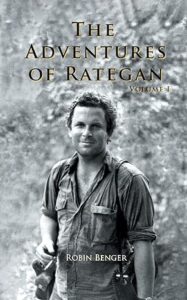

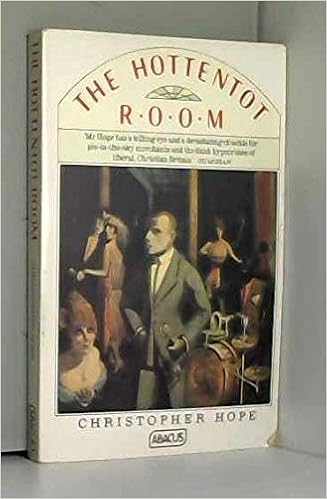
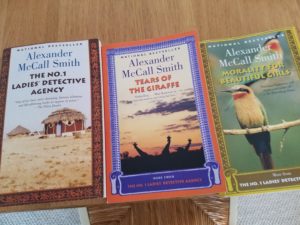
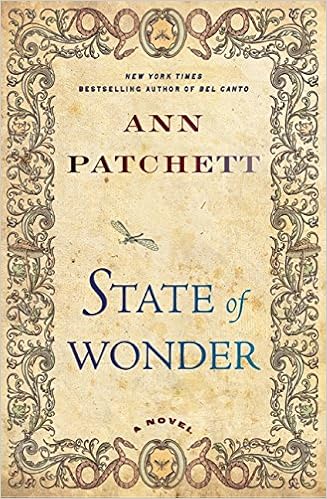 A riveting story of the potential for finding miracle cures in the depths of the Amazon. It is well-written with believable characters. Not having been there, I cannot attest to the accuracy of the descriptions of the jungle environment and the inhabitants, although the pure nature part sounds like a plausible build from the jungles of Panama with which I am quite familiar. This tale leans quite heavily on Heart of Darkness, although I suppose any story about an enterprise going off the grid might do much the same. Despite the obvious story arc that the situation compels, there are some interesting twists. While the author pokes throughout at Big Pharma, the story also takes a more philosophical twist in questioning whether you should really have what you think you wish for.
A riveting story of the potential for finding miracle cures in the depths of the Amazon. It is well-written with believable characters. Not having been there, I cannot attest to the accuracy of the descriptions of the jungle environment and the inhabitants, although the pure nature part sounds like a plausible build from the jungles of Panama with which I am quite familiar. This tale leans quite heavily on Heart of Darkness, although I suppose any story about an enterprise going off the grid might do much the same. Despite the obvious story arc that the situation compels, there are some interesting twists. While the author pokes throughout at Big Pharma, the story also takes a more philosophical twist in questioning whether you should really have what you think you wish for.![A Canadian In God’s Own Country: Rambling, umpiring and golfing in North Yorkshire by [Robin Benger]](https://m.media-amazon.com/images/I/51kKV3uyp3L.jpg) I am fortunate to be able to say that I know Robin Benger – not well, as I have not seen him since we left high school 50 years ago, and I didn’t reach his orbit then. Where he was then is important to who he was, could have been, and became, and that puts the whole book into perspective. More on that below.
I am fortunate to be able to say that I know Robin Benger – not well, as I have not seen him since we left high school 50 years ago, and I didn’t reach his orbit then. Where he was then is important to who he was, could have been, and became, and that puts the whole book into perspective. More on that below.![The Widows of Malabar Hill (A Perveen Mistry Novel Book 1) by [Massey, Sujata]](https://images-na.ssl-images-amazon.com/images/I/51yfg1VG4yL.jpg) A very engaging tale of a newly-minted attorney in 1920s Bombay (now Mumbai). Purveen Mistry is Bombay’s first and only female attorney, which presents several professional drawbacks, but it has one huge advantage: access to the class of women, often very wealthy, who are walled off from outside society in a harem and allow no contact with any males except their husband. This book is the story of a will-and-trust situation (a complex one, given the three surviving wives) that turns into a murder investigation, for which our heroine is quite unprepared. It also provides interesting insights into the interplay between India’s superficially-tolerant religious factions and the social issues (but also some of the equalizing and stabilizing influences) resulting from the British occupation which had then been going on for over 150 years. The events of the book also provide an introduction to some aspects of the Parsee religion (Zoroastrianism) imported from Persia in the middle ages, although mostly the book addresses only a few of the more dramatic practices rather than a fuller exposition of that very interesting religion. This was read as an audio book, the quality of which was excellent, using several audio voices and tonalities to keep the characters distinct.
A very engaging tale of a newly-minted attorney in 1920s Bombay (now Mumbai). Purveen Mistry is Bombay’s first and only female attorney, which presents several professional drawbacks, but it has one huge advantage: access to the class of women, often very wealthy, who are walled off from outside society in a harem and allow no contact with any males except their husband. This book is the story of a will-and-trust situation (a complex one, given the three surviving wives) that turns into a murder investigation, for which our heroine is quite unprepared. It also provides interesting insights into the interplay between India’s superficially-tolerant religious factions and the social issues (but also some of the equalizing and stabilizing influences) resulting from the British occupation which had then been going on for over 150 years. The events of the book also provide an introduction to some aspects of the Parsee religion (Zoroastrianism) imported from Persia in the middle ages, although mostly the book addresses only a few of the more dramatic practices rather than a fuller exposition of that very interesting religion. This was read as an audio book, the quality of which was excellent, using several audio voices and tonalities to keep the characters distinct.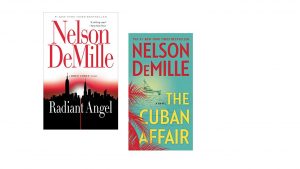 Two recent offerings from Nelson DeMille explore his similar but different sub-genres and both are well worth your time.
Two recent offerings from Nelson DeMille explore his similar but different sub-genres and both are well worth your time.